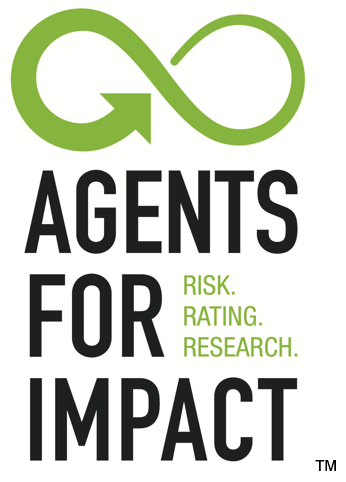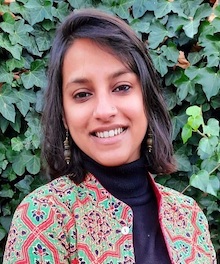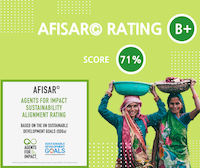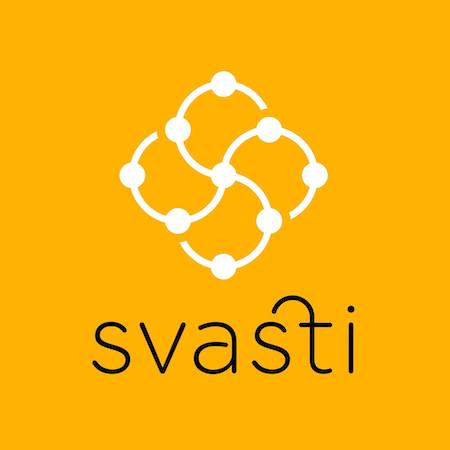 This is part of a series of features sponsored by Agents for Impact (AFI), a German impact investing firm whose products include the AFI Sustainability Alignment Rating (AFISAR©) tool. AFISAR© is a trust mark – in microfinance and other forms of social business – signifying a commitment to positive and enduring change for people and the planet, based on the UN Sustainable Development Goal (SDG) framework.
This is part of a series of features sponsored by Agents for Impact (AFI), a German impact investing firm whose products include the AFI Sustainability Alignment Rating (AFISAR©) tool. AFISAR© is a trust mark – in microfinance and other forms of social business – signifying a commitment to positive and enduring change for people and the planet, based on the UN Sustainable Development Goal (SDG) framework.
AFISAR© helps MFIs leverage the market’s growing focus on sustainability performance to raise capital from international investors and, particularly, impact investors. The rating helps investors and social businesses understand their strengths and weaknesses and devise effective strategies to minimize negative impact and maximize positive impact to the benefit of the organization – its employees, clients and other stakeholders – as well as the environment.
The conversation below outlines the AFISAR© rating process carried out in the “direct partnership” format by a leading MFI like Svasti Microfinance. Direct partnership offers a continuous and immersive experience to facilitate sustainable transitions. The active dialogue and engagement embedded in the AFISAR© process enable the MFI as well as asset managers to embark on a journey that leads to long-term sustainable development. AFI highly values long-term partnerships with organizations sharing our mission of achieving the UN SDGs. We take this so seriously that a rating above the sustainability threshold is required for the disbursement funds.
To date, AFI has used AFISAR© to rate 35+ microfinance and SME finance institutions in Asia, East Africa and Eastern Europe, helping the institutions demonstrate their SDG competency and alignment.
 Pratibha Singh (pictured): How did you become interested in microfinance?
Pratibha Singh (pictured): How did you become interested in microfinance?
Arunkumar Padmanabhan: I was a lawyer and had worked for some years with ICICI Bank. Based on that experience, I wanted to set up a commercial business in the social impact space. We started in the slums of Mumbai, and now we have expanded to eight states in India with 220,000 borrowers across 120 branches.
PS: What makes the Svasti model unique?
AP: The key to success in this field is based on three aspects: people, process and technology. Our vision follows the “people-first” approach. Technology and innovation are driving forces as well, and we have built all of our systems from the ground up. That gives us a significant competitive advantage. Meanwhile, we have focussed on client protection and social impact from a very early stage in our development. With AFISAR©, we have become one of the few companies that is measuring its performance based on the SDGs. Constantly trying to improve in impact-driven areas is of great strategic importance.
PS: Svasti chose the direct partnership route for the AFISAR© process, scoring 71 percent on the SDG portion and a B+ AFISAR© rating. How did the process unfold?
AP: The AFISAR© process
 was good through and through. We needed guidance at various stages from the AFI team, and we received it. Although we already were contributing to some of the goals, putting this into a framework and measuring it against various parameters such as client protection, governance, etc is something we never had done before. This exercise gave us some fruitful insights on how to approach our work in an outcome-oriented manner. We also learned a great deal about how to organize and present information that showcases our impact. Now we are in the process of making some changes to our systems that we are sure will make the AFISAR© process easier next time.
was good through and through. We needed guidance at various stages from the AFI team, and we received it. Although we already were contributing to some of the goals, putting this into a framework and measuring it against various parameters such as client protection, governance, etc is something we never had done before. This exercise gave us some fruitful insights on how to approach our work in an outcome-oriented manner. We also learned a great deal about how to organize and present information that showcases our impact. Now we are in the process of making some changes to our systems that we are sure will make the AFISAR© process easier next time. PS: Please share a story of Svasti’s impact.
AP: Right from the beginning, we have designed our processes and strategies in a manner that positively contributes to the customer experience. Some institutions focus on operating efficiencies or portfolio quality. They let the customer experience take a back seat because they feel the socio-economic background of their customers makes them undeserving of being the center of their company’s decisions. Customers come to us for a better experience, and it makes them feel better to get access to a range of appropriate financial choices. Things worked differently 20 to 30 years ago in India, when there was no concept of prioritizing customers. Now things are changing. I believe our customer-centric approach ties in very well with many of the SDG elements.
PS: How have you navigated the challenges of the past two years, and what are your plans to prepare for future uncertainty?
AP: The
 COVID-19 pandemic was a once-in-a-lifetime event that impacted us and our customers in ways that we never could have foreseen. We are used to having 99?percent collection efficiency, and we have had some setbacks before, like the demonetization process, when collection efficiency dropped to 80 percent before working its way back up in a matter of months. We always had plans in place to deal with what we thought would be the worst-case scenarios, but that was the worst that we had seen. With the onset of the COVID-19 pandemic, collection efficiency dropped to zero. Nobody had modelled how to deal with a situation like this, and it was a drastic event for us – our company, staff and the customers. For months, our customers did not have a source of income. The plight of the vendors, auto-rickshaw drivers and others was dramatic. But once incomes started improving gradually, so did the repayment rate.
COVID-19 pandemic was a once-in-a-lifetime event that impacted us and our customers in ways that we never could have foreseen. We are used to having 99?percent collection efficiency, and we have had some setbacks before, like the demonetization process, when collection efficiency dropped to 80 percent before working its way back up in a matter of months. We always had plans in place to deal with what we thought would be the worst-case scenarios, but that was the worst that we had seen. With the onset of the COVID-19 pandemic, collection efficiency dropped to zero. Nobody had modelled how to deal with a situation like this, and it was a drastic event for us – our company, staff and the customers. For months, our customers did not have a source of income. The plight of the vendors, auto-rickshaw drivers and others was dramatic. But once incomes started improving gradually, so did the repayment rate. This was an adverse situation for all sides. We had to re-evaluate all our processes from the ground up. As the waves of the pandemic have continued, however, we have found that the customer segment we work with is vulnerable but resilient, with high levels of integrity. As a company, we got to work on a very challenging and complex problem, and we worked on it from the three angles I mentioned before: people, processes and technology. It has made us much better at our work and gave us a lot of confidence.
PS: What is your advice to other MFIs that have not yet embarked on the sustainability pathway or chosen the AFISAR© tool?
AP: As I mentioned before, MFIs are doing a lot of work that is naturally aligned with the SDGs – so why not benefit from it? We are working with the low-income population and providing people access to finance, so there is a general inclination towards the SDGs. It’s mainly a question of measuring the work in a coherent manner. It’s impossible to ignore the SDG framework, as it will play a significant role both for the MFI’s reputation as well as its fundraising. I encourage all MFIs to work toward achieving these goals.
The Rating Team at AFI has extensive experience in impact measurement, regulation and microfinance – both exhaustive practical (on-site) experience as well as the necessary academic / theoretical background – and is, therefore, highly equipped to analyse a rated company’s strengths and weaknesses. For further details on the AFISAR© tool, please contact pratibha.singh@agentsforimpact.com.
Similar Posts:
- SPECIAL REPORT: Looking Back to Plan Ahead – The Year of AFISAR
- SPECIAL REPORT: Agents for Impact – We Make Positive Impact Investable!
- SPECIAL REPORT: Partner with Agents for Impact, and We’ll Drive Impact Together!
- MICROCAPITAL BRIEF: Svasti of India Raises $5m via Impact Investment Exchange (IIX) Women’s Livelihood Bond Issue
- SPECIAL REPORT: Inclusivity in Capital Markets Demands Sustainability Reporting
